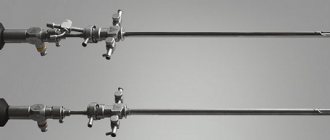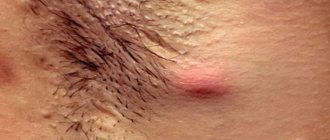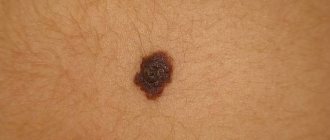Every man knows who a urologist is. Representatives of the stronger sex, as a rule, visit this specialist’s office without much enthusiasm. When wondering what area falls under the scope of a urologist, you can often hear that these are any diseases of the genitourinary system in men. What does a urologist treat for women and why do they take children to him? Find out what the doctor does, which urology specialists are considered the best in Moscow and what reviews patients leave about them, from this article.
Who can be a urologist's patient?
Not only men can contact the above specialists. Representatives of the fairer sex, children and adolescents often suffer from urological diseases. This category includes pathologies of the genitourinary and reproductive systems of the human body, regardless of gender and age. In addition, urology, as a medical branch, studies the pathogenesis, diagnosis, treatment and prevention of diseases of the kidneys, adrenal glands and other organs located in the pelvis.
For what diseases should you see a doctor?
What does a urologist treat in men? Many people associate this medical field exclusively with pathologies of the male urogenital tract. Women, in practice, although less often, also turn to a urologist. The services of this specialist are more in demand for men due to the anatomical features of the structure of their genitourinary system.
In a woman, the urethra and vagina are different canals, so diseases of the reproductive sphere are dealt with by a gynecologist, and diseases of the urinary system (kidneys, bladder, ureters, urethra) are dealt with by a nephrologist, and even less often, by a urologist.
As for genitourinary diseases in men, they are considered comprehensively by one specialist, since both reproductive and urinary functions are realized through the penis.
Urological diseases: what does a urologist treat?
Among the people, a doctor in this specialty is assigned the status of a “male” doctor. In fact, urological diseases are problems of the genitourinary system not only of the male part of the world's population: they can occur equally in women and men.
A urologist treats diseases:
- Bladder,
- ureters,
- urethra,
- adrenal glands
- kidney,
- prostate gland (in men)
- and external genitalia.
Below we will try to take a closer look at the most common diseases in urology and their main symptoms.
| No. | Names of the disease | Short description | Signs and symptoms (briefly) |
| 1. | Prostatitis |
| The disease is characterized by a constant urge to urinate and pain in the lower abdomen. Weak erections, premature ejaculation and loss of orgasm. During the acute stage, the temperature rises to 40°C, and long-term interruptions in bladder emptying are possible. |
| 2. | Adenoma |
| At an early stage, it manifests itself in the need to strain the abdominal press to urinate; the process itself becomes longer. The stream is sluggish and uneven. As the disease progresses, many men develop urinary incontinence and constant urge. Ejaculation and urination are accompanied by pain. It is dangerous not only in itself, but because it can develop into a malignant tumor over time. |
| 3. | Urolithiasis disease | A urological disease in which “stones”—calculi—form in the urinary tract and organs associated with urination. This disease is typical for both women and men equally. It can be caused by an unhealthy diet rich in salts, for example. Also, urolithiasis can be a consequence of “bad” water in your region. | Presents itself with pain in the groin and/or lower back. Emptying the bladder is painful, the urge occurs more often than usual, and blood is found in the urine. During the period of exacerbation (during the movement of stones inside the urinary system), the acute pain is so severe that many rate it at 9 points on a 10-point system. |
| 4. | Impotence | Literally - sexual impotence. Decrease or disappearance of the functional activity of the male genital organs. | The main symptom is the absence of a morning erection along with a decrease in the hardness of the penis during intercourse. Erections are weaker and appear less often, ejaculation occurs prematurely. |
| 5. | Cystitis | An inflammatory disease of the urinary system that occurs in both men and women. | Frequent urination, accompanied by a burning sensation. Cloudy urine or traces of blood in it. |
| 6. | Varicocele | A venous disease of the reproductive system in men, characterized by nodular dilatations and elongation of the veins of the spermatic cord. | A nagging pain periodically appears in the testicular area. |
| 7. | Hydrocele (hydroxycele) | Accumulation of serous fluid in the ovaries (their membrane). It occurs due to the difficulty or impossibility of its outflow through the lymphatic vessels. | Swelling of the scrotum, the appearance of a compaction, may not be accompanied by pain |
| 8. | Epididymitis | Inflammation of the epididymis | Pain in the abdomen and/or side. Foul-smelling urethral discharge, blood in the urine, and pain when emptying the bladder |
| 9. | Age-related hypogonadism | It relates not so much to urological diseases, but to complex problems at the intersection of urology, endocrinology, general therapy and, even, psychology. | Older men experience a decrease in testicular size and erection problems. Hair growth on the face and body is on the decline, and obesity occurs in a feminine manner. |
| 10. | Condylomatosis | Wart growths in the anus or vulva that grow vigorously. | There may be bloody discharge |
| 11. | Urethritis | Inflammatory disease on the mucous membrane of the urethra (urethra). Most often it can be caused by infectious causes, including during sexual intercourse. | Foul-smelling discharge, painful urination |
Alas, this list does not exhaust the problems that urologists treat. However, our article is more of an informational nature, so we allow ourselves to limit ourselves only to these, in our opinion, the most common diseases in urology.
As you may have noticed, most of the symptoms of diseases in urology, although they differ from disease to disease, still have something in common. And in order not to start the development of the disease, it is important to notice any suspicious signs in time.
The most common warning signs:
- Burning or painful sensations in the genitourinary organs may accompany sexual intercourse.
- Modification of the external genitalia.
- Impaired urination, pain and itching.
- Changes in the color or odor of semen (in men).
- Strange discharge.
- Unusual type of urinary fluid.
- Increased urination.
- Incontinence.
You are at risk if you have chronic diseases or lead an unhealthy lifestyle.
The development of urological diseases is facilitated by, for example: promiscuity, excessive consumption of alcohol and junk food, and living in conditions of constant stress.
It should be noted that today the age threshold for many diseases treated by urologists has noticeably risen, and some symptoms do not cause concern in the first stages of the disease, which is just as dangerous. After all, the effectiveness of treatment is directly affected by the speed of contacting a urologist.
If you do not undergo a timely examination by your treating urologist, or by any specialist who treats a wide range of diseases, then the progression of the disease threatens infertility or impotence.
Less radical consequences are sexual dysfunction, depression, decreased ability to work, and loss of vital activity.
To protect yourself from impotence or infertility, be attentive to your body. If at least one of the above signs is familiar to you, consult a urologist at the URO-PRO clinic.
Request a call ← Our specialists can call you back at a time convenient for you. The call is free!
Who is an andrologist?
The principle of gender separation in urology is decisive in identifying subcategories of urology. Conventionally, this medical specialization is divided into:
- andrology;
- urogynecology;
- pediatric urology.
Most urologists in the clinic, in addition to their main specialty, have the right to treat patients with andrological disorders in men. These include diseases accompanied by the following symptoms:
- pain, burning and stinging when urinating;
- sexual disorders;
- decreased libido;
- retention and weakening of the urine stream;
- frequent urge to go to the toilet;
- a pronounced change in the color or smell of urine;
- atypical discharge from the urethra;
- lack of erection.
Urology, in contrast to nephrology, which involves the use of conservative methods for treating kidney and bladder diseases, is a surgical science. The competence of a urologist-andrologist includes therapy for such male pathologies as inflammation of the prostate gland, balanitis, benign prostate tumors, infertility, and impotence. If it is not possible to receive treatment from a venereologist, a urologist has the right to prescribe treatment for sexually transmitted diseases.
If a child has congenital underdevelopment of the genitourinary system or acquired diseases (for example, cryptorchidism, phimosis, varicocele, testicular hydrocele, cystitis), it is necessary to contact a pediatric urologist. Registration for appointments with doctors of this profile is made in advance.
Urologist - what he treats: who he is and what he checks at the appointment, what diseases the andrologist treats
No special preparation is needed for the appointment. You just need to carry out the simplest hygienic procedures and do a cleansing enema, freeing the rectum for a digital examination of the prostate.
Urology (uro - urine, logo - science) is a field in medicine that deals with the research, diagnosis and treatment of diseases of the genitourinary (genitourinary) system.
Who is a urologist? He is a urology specialist who sees patients, diagnoses and prescribes treatment.
His area of activity includes systems and organs involved in the excretion of urine (adrenal glands, urinary tract, bladder, kidneys, and male genital organs).
What kind of specialist
Patients of any gender and age turn to him for advice and treatment. Of course, men are more likely to apply due to their anatomy. A urologist treats diseases in women such as cystitis, inflammation of the ureter, enuresis (after childbirth), but is not directly related to inflammation of the uterus and ovaries.
Urologists differ in the categories of patients they accept and the characteristics of the diseases:
- urologist-andrologist - sees exclusively men and, in addition to diseases of the urinary system, specializes in dysfunction of the male genital organs. His areas of expertise include: infertility, developmental defects, contraception and decreased sexual activity in men;
- urogynecologist - specializes in the peculiarities of the course of diseases of the urinary system in women;
- A pediatric urologist sees boys and girls under the age of 18 and specializes in defects in the development of the reproductive system in boys. If he receives a diagnosis more related to gynecology or andrology, the patient is redirected to the appropriate specialist. In children, the genitourinary system is in the development stage, so the diseases have their own characteristics. This makes certain adjustments to the cause of their occurrence and course;
- A urologist-gerontologist specializes in the characteristics of abnormalities in the functioning of the m/n system in elderly people. Diseases that arise in the m/n system upon reaching old age are fundamentally different from the diseases of “youth”. The body wears out, systems and muscles do not work at 100%. This leads to the appearance of defects and deviations. Many of them cannot be cured at all, but only to alleviate the symptoms, such as weakening of the pelvic muscles and subsequent urinary incontinence. These are very important accents that are unique to older people;
- A urologist-oncologist diagnoses and treats oncological diseases of the genitourinary system.
What is the difference between a urologist and a venereologist? The first are focused on issues related to inflammation and infections of the urinary system, which, due to human anatomy, affect the genital organs and especially often the male ones.
Venereologists deal with diseases specific to the genital organs, and the route of infection is through sexual intercourse. For example, cystitis.
The inflammatory process related to urology affects the bladder and is not transmitted. Gonorrhea is an infectious disease that affects the mucous membranes of the genitourinary organs, is transmitted sexually, is diagnosed and treated exclusively by a venereologist.
How is the appointment going?
What the urologist does at the appointment: collects anamnesis and conducts a direct examination. Taking an anamnesis means asking the patient where it hurts, how it hurts, for how long, what medications are taken, what kind of pain you had before, and whether there are any defects.
Examination occurs differently for men and women. There should be no painful sensations in any category. The exception is the characteristics of the disease.
Inflammations and tumors can cause pain when a specialist touches them, as with prostate adenoma.
How the appointment is carried out for women, what the urologist checks. The genitals are examined for the presence of rashes, discharge and inflammation. The condition of the kidneys is checked by tapping and the bladder by palpating.
Women are admitted to the gynecological chair and examined using special gynecological kits.
You must have a diaper with you - place it on the chair, as well as a gynecological speculum and a brush for a smear, if the institution does not provide them.
Before visiting you cannot:
- have sexual intercourse a day before your appointment;
- douching, especially with medications that kill pathogens.
The latter may not allow for reliable laboratory analysis if necessary.
- What does a urologist check for men?
- A rectal examination of the prostate gland is expected, therefore, in the morning before visiting a specialist, it is recommended to do a cleansing enema to simplify the examination and to avoid uncontrolled release of feces due to “stimulation” of the rectal opening of the rectum.
- The urologist-andrologist will also examine the genitals and palpate them, palpate the bladder and tap the kidneys.
- You should not have sexual intercourse two days before visiting a specialist.
Diseases common to all categories of patients:
- infections of the m/n system;
- urolithiasis disease;
- enuresis;
- frequent urination;
- kidney and bladder diseases.
These diseases are typical for each sex, as they affect the systems and organs they have. The sources of the disease do not depend on whether sexual activity is present in the patient’s life, so the disease can appear in both children and the elderly.
What does a urologist treat in men:
- prostatitis. Inflammation of the prostate gland. With any inflammation, the tissue increases in volume. The main purpose of the organ is to block the urinary canal during ejaculation. Due to inflammation, the channel is constantly blocked;
- BPH. A benign formation, which also leads to an increase in the volume of the organ and blockage of the urinary canal. Typically for men over 45 years of age due to decreased hormonal activity;
- testicular diseases. The testicles may be susceptible to infections (Orchitis, Epidemitis), abnormal enlargement (Hydrocoela), cystic formations (Spermatocoela), pathological disorders (Varicocoela, Testicular torsion) and trauma;
- phimosis;
- loss of potency and impotence;
- premature ejaculation;
- infertility.
The very first appointment is to take a urine test. Depending on the suspected disease, this may be a general analysis according to Nechiporenko or Zimnitsky.
To confirm the diagnosis or clarify the characteristics of the course, the following diagnostic methods may be prescribed:
- Cytoscopy. Internal examination of the bladder using a cytoscope, which is inserted into the organ through the urinary canal. The procedure allows you to identify neoplasms and inflammation;
- Urethroscopy. The procedure is similar to cytoscopy, but the urinary canal is examined;
- Urography. The procedure for checking the functioning of the kidneys and genitourinary system. A drug is injected into the body intravenously, which causes a certain reaction in the body. As the reaction progresses, specialists can determine the current state of the disease;
- Cystography. A procedure using contrast on an x-ray. The contrast sets off healthy tissues from inflamed ones, stones and neoplasms become visible;
- Antiography. X-ray examination of blood vessels using contrast;
- Ultrasound.
Regular visits to a urologist (at least once a year) are recommended for men over 45 years of age to monitor the possible development of prostatitis, as well as for boys during the development of the genital organs, in order to avoid deviations and defects in development.
Other categories of patients should seek advice if one or a set of symptoms occur:
- pain when urinating;
- pain in the groin area;
- pain in the perineum;
- lower abdominal pain;
- pain in the lumbar region;
- frequent urge to go to the toilet (often with a minimal volume of urine);
- rare urge to go to the toilet (up to 2 times a day);
- enuresis;
- impurities of blood and/or pus in the urine;
- decreased potency;
- impotence.
If pain is accompanied by an increase in temperature, you should not hesitate.
A high temperature indicates an inflammatory process in the body and requires surgical treatment.
A pediatric urologist should be consulted urgently if boys experience asymmetrical development of the testicles or formations in the scrotum area.
Children may also experience enuresis after reaching 4 years of age. This is a reason to visit a specialist.
In addition, congenital pathologies, such as an undescended testicle, are a reason for an urgent visit to a specialist.
Examination of men
What do urologists treat? There should be no questions about this now. Next, we’ll try to figure out how to examine men who seek help from a specialist in this area.
The initial appointment begins with a urologist studying the medical history, visual examination of the painful area, clarifying the complaints with which the patient came, and collecting an anamnesis. One consultation with a urologist will not be enough to make an accurate diagnosis. Before determining the disease, the patient will be prescribed an examination, the results of which will help to recognize the problem and choose the optimal methods of therapy.
In private clinics, urological diagnostics can be performed on the same day. Ultrasound or endoscopic manipulations do not require special preparation, but laboratory tests of urine and blood must be taken on an empty stomach. In addition to standard tests, the patient may be referred for kidney radiography, intravenous urography, urethroscopy, and spermogram.
In men, the doctor checks the condition of the external genitalia and inguinal lymph nodes. The urologist examines the prostate gland using the palpation method. If inflammation or the presence of a neoplasm is suspected, the doctor proceeds to a rectal examination. This procedure is unpleasant and painful for men, but it is mandatory, because only with its help can one obtain an objective assessment of the condition of the prostate. If the size of the prostate gland exceeds the norm, while the organ itself has a dense, homogeneous structure, an adenoma is diagnosed. A urologist can suspect cancer after examining nearby lymph nodes, which always become thicker and enlarged with cancer.
For preventive purposes, men over 35 years of age need to visit a doctor at least once a year in order to be able to detect such dangerous diseases as prostate adenoma, bladder cancer, and pyelonephritis at the initial stage.
Progress of examination by a urologist
Often among representatives of the stronger sex the question is asked about what a urologist does for men during the initial appointment and subsequent consultations.
The examination often follows a standard procedure.
- History taking
Taking an anamnesis is an important stage of admission.
During it, the doctor clarifies how long ago certain symptoms appeared, how severe they are, and how much they reduce the quality of life.
The doctor must clarify information about the man’s sex life, urination characteristics, and stool. You shouldn’t be shy about the doctor’s questions, since they are all aimed at making a diagnosis as quickly as possible.
- Inspection
After collecting anamnesis, the doctor must examine the penis and genital area. During the examination, you can detect signs of swelling, scratching indicating itching, and rashes.
The examination also allows you to assess the correctness of the anatomical formation of the genital organs. This may also be important for diagnosis.
- Purpose of tests
Any disease in the modern world is finally diagnosed after it is confirmed by tests. The doctor prescribes a list of tests in each case individually, based on the symptoms the patient complains of.
- Selection of therapy
The choice of treatment is always the last step in treatment. It is possible when the final diagnosis has already been made.
Features of female urology
As already mentioned, not everyone knows that urologists treat not only men. For representatives of the fair sex, this highly specialized specialist diagnoses diseases of the genitourinary system and sexually transmitted infections. Disorders, inflammation, benign formations of the kidneys, bladder, urethra, urinary tract infections - all this falls within the scope of competence of a specialist in female urology.
The doctor examines patients in a gynecological chair. At the appointment, the doctor examines the condition of the bladder and ureters, palpates the lumbar region where the kidneys are located. For laboratory testing, the urologist takes a smear from the woman’s urethra and prescribes instrumental diagnostic procedures (most often ultrasound, but sometimes MRI or CT is additionally prescribed).
Urologist or andrologist: where to go for prostate diseases
Often among representatives of the stronger sex the question is asked in the doctor's office about where to go if there are signs of prostate disease. In this case, first of all, you should visit an andrologist.
Andrologist is a doctor specializing in prostatitis and other diseases of the prostate gland. This is not an isolated specialty, but part of urology. Therefore, many urologists part-time act as andrologists.
A urologist examines the prostate through the rectum.
A standard digital rectal examination is performed.
During which the doctor gets the opportunity to evaluate the structure of the prostate gland, its size, shape and other features. If digital examination shows any abnormalities, additional tests are prescribed.
Also, during the examination using a finger, the doctor can take prostate juice for analysis.
There is often interest in why a urologist checks the prostate. The fact is that among representatives of the stronger sex, especially after 40 years, dangerous pathological changes often occur in this organ. Only timely diagnosis can prevent tragic consequences.
Treatment of children
At an early age, patients may also require qualified assistance from a urologist. A pediatric specialist treats diseases of the genitourinary organs in children. The specificity of pediatric urology lies in the individual anatomical features of the processes occurring in the child’s body. The mechanism of development of genitourinary diseases in children and the principle of their treatment differ significantly from similar nuances in adults. Doctors draw the attention of parents to the fact that the majority of urological diseases are much easier to diagnose and treat at an early age, preventing them from becoming chronic.
One of the common reasons for visiting a pediatric urologist is enuresis. Problems of urinary incontinence in children over 6 years of age. In some cases, the problem is not urological, but psychological or psychoneurological in nature, therefore, with enuresis, it makes sense to diagnose all the disorders present in the child’s body. The reason for contacting a urologist is not only urinary incontinence, but also pain during urination, the frequency of which can be increased or decreased. The complete absence of urination in a child should also cause concern - in this case it is necessary to act immediately, since we are talking about serious life-threatening conditions. To make a correct diagnosis, the urologist needs to study all the test results in detail, and only then prescribe treatment.
If a child complains of lower back pain, but cannot yet accurately describe how he feels and the location of the discomfort, the urologist’s task is to carefully study the clinical picture. Sometimes kidney diseases occur simultaneously with symptoms such as bloating and vomiting. In the treatment of these pathologies, medications are used that restore the functionality of the kidneys and urinary system. A urologist also treats children with intrauterine kidney or bladder abnormalities. Helping a child with such deviations is mandatory.
With improper hygienic care of a boy’s genitals, the risk of tissue infection increases, which can lead to the development of balanoposthitis - inflammation of the glans penis. A urologist checks newborn babies for the absence of a pathology such as hydrocele (dropsy of the testicles). Usually the doctor examines boys in the first days after birth. If this pathology is not detected in time, the child’s scrotum will increase in size and surgical intervention will be required.
History of the profession
The birthplace of urology is Ancient Egypt, as evidenced by papyri describing the treatment of kidney stones and the ritual of circumcision, dating back to the 5th century BC. However, urology has been considered an independent science since 1588, thanks to the book of the Spaniard F. Diaz, in which knowledge in this area was systematized. Two centuries later, lithotomy was born in Venice (F. Pagioli), and another 100 years later, the first specialized department was opened in Paris, where urotomy was performed and acute urinary retention was treated. The founder of modern urology, Felix Guyon, worked there and then headed it.
The development of urology was facilitated by the invention of the cystoscope (1877, by the German physician Maximilian Nitze) and the discovery of X-rays, which have been actively used in diagnostic urology since 1927. The first planned nephrectomy was performed by G. Simon in 1869.
Since the 20th century, there has been an international society and association of urologists. This century was marked by the invention of chromocystoscopy (1903), retrograde ureteropyelography (1906), transurethral electroresection (1926), endovesical electrocoagulation (1927), and excretory urography (1927).
In the second half of the twentieth century, hemodialysis became firmly established in urological practice, and kidney transplantation was performed. In 1950, our compatriot L.A. Yutkin discovered the electrohydraulic effect, on the basis of which the lithotripsy technique was developed. Modern urology is looking to the future and is actively developing minimally invasive surgery and da Vinci robotic systems, expanding the range of its capabilities.
Jean Casimir Felix Guyon opened the world's first urological clinic at the end of the 19th century.
Why pay for the services of a urologist, and not be treated under compulsory medical insurance?
Every man who has problems of an intimate nature would like to be guaranteed access to the best urologist. When choosing a doctor, the decisive role is played by his experience, professionalism and tact. Medical care under the compulsory medical insurance policy does not allow you to choose - the patient can only rely on the benevolence and education of local doctors.
Reviews will help you choose a good specialist. There are many urologists and andrologists available in Moscow. Doctors promise to cure everyone who turns to them, regardless of the severity of the disease. However, you need to believe not promises, but real reviews of patients who have already encountered specific specialists in the field of urology.
Next, let’s take a look at the rating of the best urologists in Moscow according to the website medbooking.com. The rating is based on visitors’ comments about specialists, the treatment methods they use, and the equipment. Having appreciated all the advantages and compared the prices of initial appointments with doctors from different medical institutions, it is easy to make the right choice and trust the most reliable specialist.
When there is a need to contact an andrologist
Urologist-andrologist – who is he? When choosing a doctor, you need to understand who the andrologist is, what male ailments he eliminates, and what kind of symptoms can serve as a serious reason for contacting him.
Uninformed people are often faced with the question: what does a urologist-andrologist treat? Here is what could well serve as a reason to contact an andrologist:
- Deviation in fetal development, which is revealed in the absence of testicles or appendages, prostate. As well as incomplete development of the penis or scrotum;
- Childlessness - when the man’s body does not produce the required volume of developed sperm, or it simply does not enter the woman’s body. Sometimes chromosome pathology can provoke infertility in a man;
- Inflammation of the foreskin and head of the penis. It can be initial and repeated. The initial inflammation is provoked by microbes or fungus, and the second one is caused by an infection that came from the urethra. This inflammation can also be caused by diabetes or poor hygiene.
- Inflammation of the epididymis - can occur as a result of injury to the scrotum, stagnation of blood in the pelvic organs, or genital (and not only) infections;
- Inflammation of testicular tissue - it can develop after suffering any serious contagious illness (smallpox, etc.), severe injuries or ailments of the genitourinary system;
- Menopause - during this period the level of male hormones drops, and typical symptoms begin to appear;
- Oncology of the kidneys, prostate or penis;
- Swelling of the prostate - appears as a result of disruption of blood flow in the pelvis, frostbite, weakening of the immune system, and for some other reasons;
- Complete lack of sexual desire, the onset of complications with libido or ejaculation - early or slightly delayed ejaculation, lack of sperm;
- Decrease in erection.
In addition to the already listed difficulties with male sexual health, a urologist-andrologist is the one who has the ability to cure even hair loss in the genital area, as well as serious ailments associated with male power.
Nemirovsky Lev Lazarevich (9.65 points)
This specialist is far from last in the ranking of Moscow urologists. The doctor has twenty years of work experience in his specialty. At the moment, Nemirovsky works in a medical office near the Tsvetnoy Boulevard metro station (exact address: Moscow, Tsvetnoy Boulevard St., 30, building 2). The cost of the initial appointment is 2600 rubles. The doctor specializes in identifying and treating male and female diseases of the urogenital tract. Patients with kidney pathologies often turn to this doctor, which is discussed in more than one review.
Where to study to become a urologist
You can get the necessary education exclusively in medical universities, where admission is open either after the 11th grade of a general education school, or after a secondary specialized medical educational institution.
An applicant must first enroll in one of two areas:
- "Healing."
- "Pediatrics".
The duration of full-time training is six years, and after completing training and receiving a diploma, the young doctor must enter residency in the field of Urology, where training lasts two years.
Active doctors must undergo certification every five years, thereby confirming their level of qualifications. To achieve this, urologists participate in scientific and practical events and publish their works on the problems of the industry in specialized publications.
Mingbolatov Feyzula Shakhbolatovich (9.8 points)
Andrologist with 15 years of experience, candidate of medical sciences. The doctor specializes in diseases of the reproductive system in men. A urologist provides assistance with inflammation of the prostate gland, sexually transmitted diseases, sexual disorders, erectile dysfunction of any etiology, and pathologies of the urinary tract. Mingbolatov conducts endoscopic and x-ray examinations of the genitourinary system. If you believe the reviews, then most often this specialist uses hormonal drugs in therapy.
The doctor receives patients at the SM-Clinic on the street. Yaroslavskaya, building 4, building 2. The medical facility is within walking distance from the Alekseevskaya and Botanical Garden metro stations. Consultation price – 2000 rub.
Where is the best place to go when you need a male andrologist?
To get a consultation with an andrologist, you must contact one of the following medical institutions:
- diagnostic center;
- multidisciplinary clinic;
- specialized clinic for male urology and andrology;
- inpatient hospital.
Diagnostic center or multidisciplinary clinic - for prevention
These options are ideal for those who need a consultation with an andrologist for prevention. When nothing bothers you, but you want to check if everything is okay. In such cases, it is quite enough to pass basic tests and undergo an ultrasound. Even if all indicators are normal, it is advisable to undergo such diagnostics approximately once a year.
Specialized clinic for male urology and andrology - for outpatient treatment
This option is for those who have symptoms (pain, discharge, problems with potency and/or ejaculation, frequent urination, infertility). Such clinics have everything necessary to carry out full diagnostics and comprehensive treatment:
- In case of acute pain, emergency assistance can be provided here.
- For chronic conditions, a course of therapy will be offered using the most modern hardware treatment methods.
Inpatient hospital - for hospitalization
You just can't get here. They are either sent by doctors from polyclinics and specialized clinics, or brought by ambulance paramedics.
Inpatient treatment is indicated for those who need:
- under 24-hour medical supervision,
- or in surgery.
Vorotnikova Irina Valentinovna (9.65 points)
A specialist with more than 40 years of experience, candidate of medical sciences, doctor of the highest category. Works at the MedCenterService clinic at the address: st. Zemlyanoy Val, 38/40, building 6 (Kurskaya metro station). The doctor provides consultations, diagnoses and treats urological diseases in men and women. Vorotnikova is also popular with patients because she is involved in the treatment of dermatological and trichological diseases and the development of immunostimulating agents. The specialist completed internships and advanced training courses in foreign clinics. Vorotnikov does not abandon his research activities. The doctor periodically writes articles for printed publications.
Feedback on the quality of paid services provided by Vorotnikova is mixed. Users have repeatedly written that the doctor refuses to even talk to the patient until he pays for the consultation or prescribed tests in full. If you believe the reviews, the urologist is often rude to his patients. It is quite possible that the users who wrote negative comments about Vorotnikova did not fully describe and reveal the essence of the situation that arose between them and the doctor. But, nevertheless, a disrespectful attitude towards clinic visitors is a serious disadvantage for the reputation of such a high-class specialist.
Pros and cons of the profession
pros
- Urologists, without work experience, can quickly find a good vacancy.
- Providing assistance to patients, which will attract applicants who are distinguished by altruism.
- Opportunity to undergo short-term retraining by changing the field of activity (vocational training courses). There are a large number of medical professions available to urologists (more than 10).
- The profession will be of interest to applicants who are interested in biology and chemistry.
- Prospects for opening your own urological clinic.
- Respect for society, social significance.
Minuses
- The work is nervous, the schedule can be irregular, because the operation can last 30 minutes or 3 hours.
- Constant interaction with patients, so there is a risk, albeit small, of contracting any disease. Stressful situations are also possible.
- In the first years of work, wages are low.
Sokolov Alexander Mikhailovich (9.9 points)
The specialist treats urological diseases in children and adult men. A urologist of the highest category has more than 20 years of experience. Dr. Sokolov works at the multidisciplinary clinic “Miracle Doctor” on Shkolnaya Street near the Rimskaya metro station in Moscow.
Patients with benign prostate tumors, inflammation of the male gland, phimosis, and testicular varicocele turn to this specialist. Sokolov helps patients with metabolic syndrome and male impotence. The doctor regularly takes part in specialized conferences, forums, symposiums, and takes advanced training courses in endourology and emergency abdominal surgery.
The high rating of this specialist is a natural reflection of dozens of positive responses from patients who are satisfied with the quality of service and the doctor’s sensitive attitude to their problem. Most reviews about urologist Sokolov are left by parents of children who were treated by him.
What complaints should you contact a urologist about?
If you have any of the following symptoms, do we advise you to consult a urologist or urologist-andrologist?
- itching and burning when urinating;
- discharge from the penis;
- sexual function disorders;
- pain in the lower abdomen;
- pain during sexual intercourse;
- increased frequency of urination and urinary incontinence;
- detection of blood in seminal fluid;
- change in the color of seminal fluid;
- warts and other formations in the genital area;
- infertility;
- increased body temperature with pain in the scrotum.
- Established preliminary diagnosis;
- Prescribing the list of diagnostic studies and tests necessary to clarify the diagnosis;
- Drugs are prescribed to reduce the symptoms of the disease until diagnostic results are obtained and a final treatment regimen is prescribed;
- A date for a follow-up consultation is set with the results of the examination.
Many men may have a question: when to go to an andrologist, you should definitely contact this specialist if:
- infertility, especially if the gynecologist did not identify problems with the partner;
- painful sexual intercourse;
- itching or pain in the lower abdomen or genitals;
- painful sensations during urination, urinary incontinence, pus or blood in the urine;
- unpleasant discharge from the urethra;
- erectile dysfunction, decreased libido, problems with potency;
- warts, papillomas and other formations in the genital area;
- the appearance of protrusions in the scrotum area;
- late puberty - if obvious signs do not appear before the age of 13;
- enuresis in a boy over 4 years old;
- overweight;
- deviations from the norm in the size of the testicles and penis;
- the presence of congenital pathology.
Gonchikov Bator Sandanovich (9.9 points)
One of the youngest urology specialists in Moscow with high ratings. Dr. Gonchikov does not take money from patients at the initial appointment, for many this is a definite plus. A doctor consults patients at the SM-Clinic reproductive health center, which is located at 14 Raskova Lane (near the Dynamo metro station).
Despite his short work experience (Dr. Gonchikov has been working in his specialty for about six years), this specialist managed to achieve recognition both among patients and among medical colleagues. Bator Sandanovich diagnoses and treats urological diseases in men and women. In addition, the doctor is proficient in several surgical techniques, including vasoresection, chromocystoscopy, cystoscopy in women, blockade of the seminal canal in men, vasectomy, cystography of the bladder and other manipulations. The doctor is a member of the Eurasian Andrological Summit.
Kisakov Vladimir Vasilievich (9.7 points)
She specializes in the surgical treatment of urological diseases in men, and performs endoscopic interventions for pathologies of the bladder and urinary tract. Judging by the reviews, the percentage of complications that arise in Kisakov’s patients during the postoperative period is extremely low, so everyone who needs surgical care strives to see him.
Kisakov has 21 years of experience in his specialty, graduated from the Perm State Medical Academy, and a couple of years ago took courses in purulent surgery, primary specialization in urology and endoscopy. The clinic where urologist Kisakov sees is located at the address: Nizhnyaya Krasnoselskaya street, building 15/17, not far from the Baumanskaya metro station.
How not to make a mistake when choosing a doctor?
Our article contains information about the best urologists in the capital. All specialists have a worthy reputation and experience in treating problems of the urogenital tract in men and women. All that remains for the patient is to choose one of the specialists listed in the rating and make an appointment with a urologist. In addition to the professional qualities of the doctor and the convenient location of the clinic, you should also pay attention to the cost of services. If it turns out to be unacceptable for the patient, he can always refuse the service and go to another medical institution by calling the reception and making an appointment with the doctor he likes. You can also simply leave your request on the clinic’s website, after which the patient will be called back and an appointment time will be scheduled.











